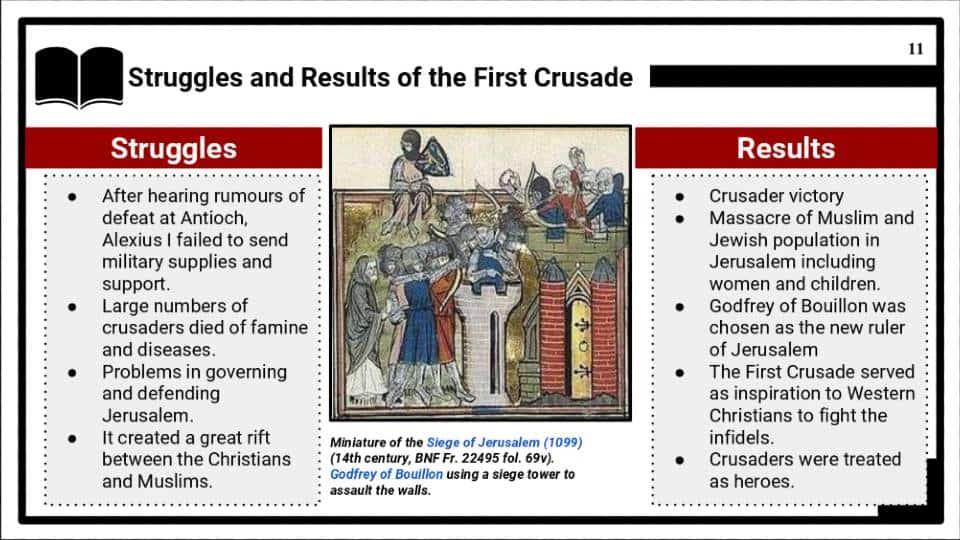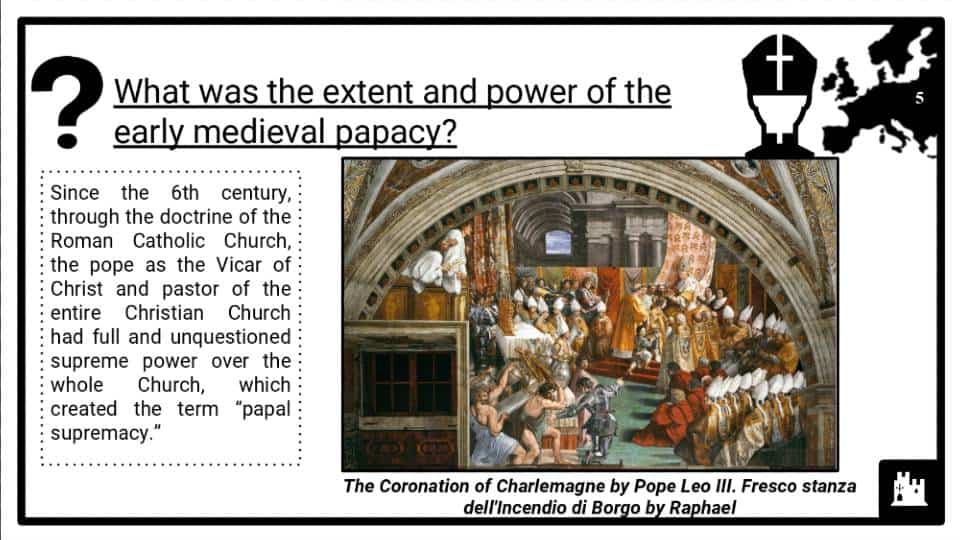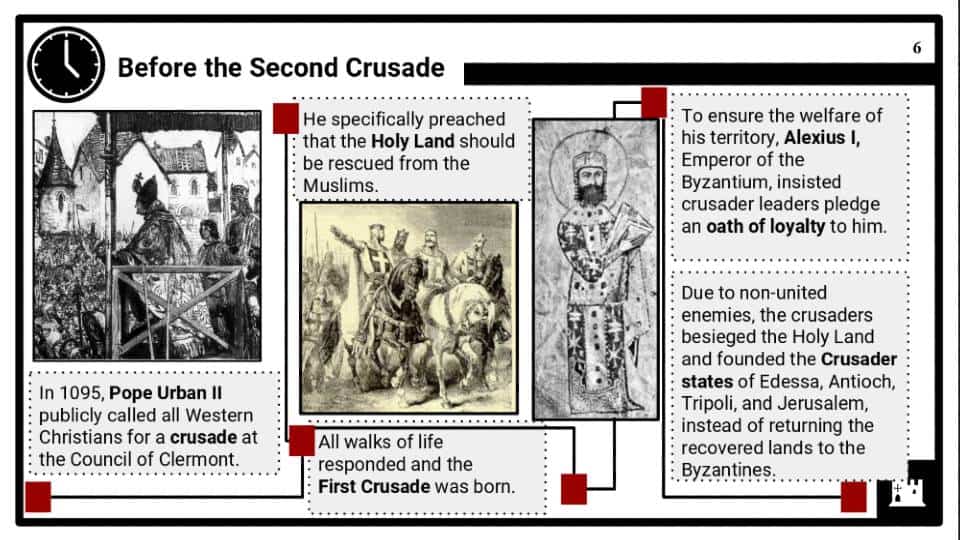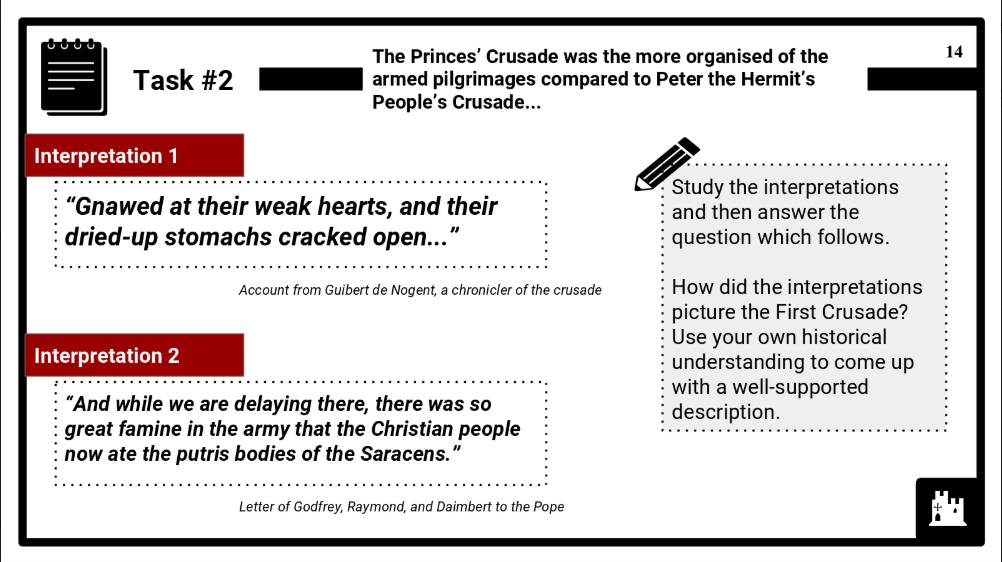Teach any Eduqas module 1E: The Crusades, c1095-1149, no prep needed!
Do you want to save dozens of hours in time? Get your evenings and weekends back? Be fully prepared to teach any Eduqas GCSE topic 1E?
Every Eduqas topic 1E is covered, and each module comes complete with:
Eduqas GCSE History Component 1: Studies in Depth
Written examinations: 2 hours (comprising two papers of 1 hour duration each)
50% of qualification 100 marks (plus 6 marks for spelling, punctuation and grammar and use of specialist terms)
Learners study two Studies in Depth, one British and one non-British, from eight options in total. This component focuses study on substantial and coherent short time scales. Studies in Depth will provide learners with the opportunity to study history in greater depth and consequently understand the complexity of a society or historical situation more effectively.
Studies in Depth will focus study on different historical eras and different geographical contexts. This component encourages learners to use a wide range of historical sources. Learners should also study different historical interpretations of specific events and issues.
The two options studied must be from different historical eras (Medieval, 500-1500; Early Modern, 1450-1750; and Modern, 1700-present).
This module is from the Medieval era.
Curriculum for 1E. The Crusades, c1095-1149
- This option focuses in depth on selected themes and issues relating to the history of the Crusades in the period 1095-1149.
- Candidates will be required to consider the main political, military, social and cultural factors associated with the Crusading movement during this period.
- Candidates should develop an awareness of how aspects of the Crusades during this period have been represented and interpreted, and how they have generated wider historical debate.
- They should also address the key issues in each topic area using a range of historical sources.
- The required content in italics shows which key features and characteristics of the period must be studied.
Key Questions and required content
1. The power of the papacy
What was the extent and power of the early medieval papacy?
Required content: Reform of the papacy; influence of Cluny; importance of pilgrimages; the Investiture Contest – papacy against kingship
2. Birth of the Crusades
What factors led to the birth of the Crusading movement?
Required content: The rise of the Seljuk Turks; role of Urban II; the Council of Clermont; Papal Indulgences; the rise of a militant Christianity; Holy Places; individual motives
3. The First Crusade
What factors contributed to the success of the First Crusade?
Required content: Leadership and the role of Byzantium; aims and early battles; the siege of Antioch; capture of Jerusalem; results
4. The Crusader Kingdoms
What was life like for the Crusaders living in Outremer?
Required content: Establishment of the Crusader kingdoms – Edessa, Antioch, Tripoli, Jerusalem; difficulties encountered; integration with Muslims and Jews
5. The Second Crusade
What were the main factors behind the failure of the Second Crusade?
Required content: Reasons for the Second Crusade; participants and problems; reasons for the failure of the Second Crusade
6. Importance of the Crusades
Why were the Crusades important during this period?
Required content: The Crusading Orders; the development of castle technology; importance of the First and Second Crusades; interpretations of the Crusading movement
7. Social and cultural effects of the Crusades
How did the Crusades affect European life during this period?
Required content: Religious intolerance; developments in trade, significance for science and language; political impact upon Europe




